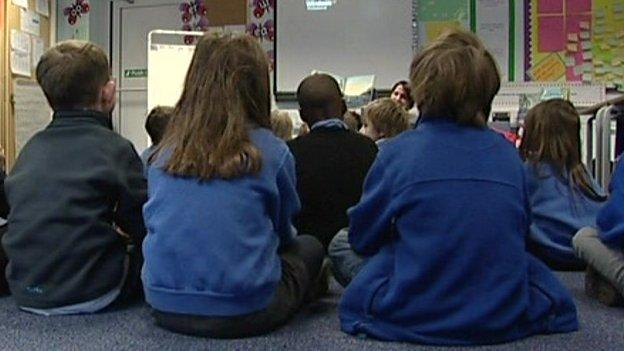Building new schools 'must be top priority' for government
- Published
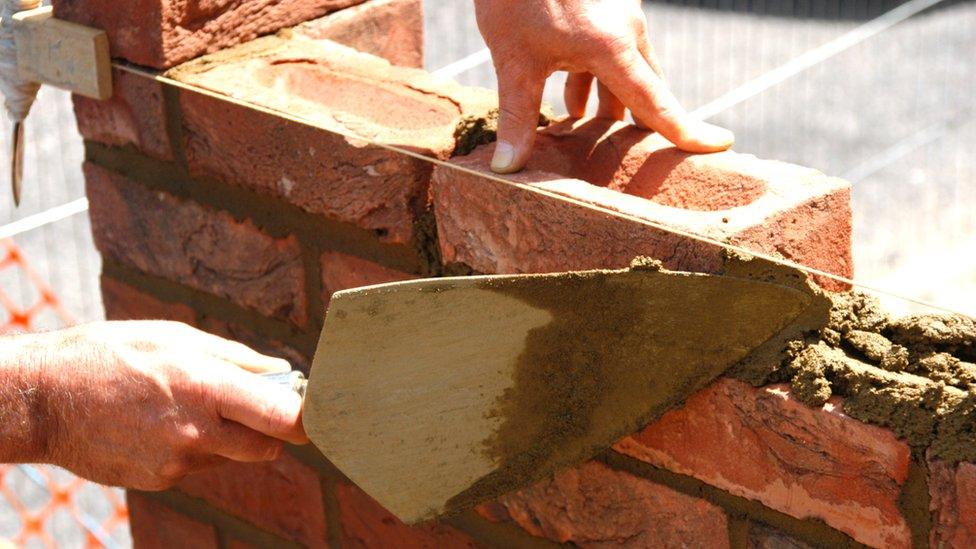
More than 20,000 extra classrooms could be needed says the report
Hundreds of extra schools could have to be built in England to cope with the school population bulge, say public sector buildings specialists.
Official figures, external suggest there will be almost 730,000 more school age children by 2020 than there were last year.
Scape group, which advises local authorities on new buildings, says this amounts to 24,287 more classrooms.
But ministers say there is "significant capacity still in the system... before new places need to be created".
A Department for Education spokeswoman said local authorities would continue to create thousands more school places in coming years, with 600,000 additional pupil places created in the five years to May 2015.
"And we are investing £7bn in new places up to 2021," the spokeswoman added.
However the Local Government Association, which represents 370 councils in England, says its own research suggests that although existing schools have been expanding to cope with the bulge, many have almost run out of space.
And once it is no longer possible to increase the size of existing schools - new ones will be needed, the LGA points out.
Building boom?
Department for Education figures project 8.6% more primary school pupils in England by 2020 - but the biggest increase will be as children move into secondary school where pupil numbers are expected to rise by 12%.
Scape's report, external says this could amount to the equivalent of more than 2,000 new schools.
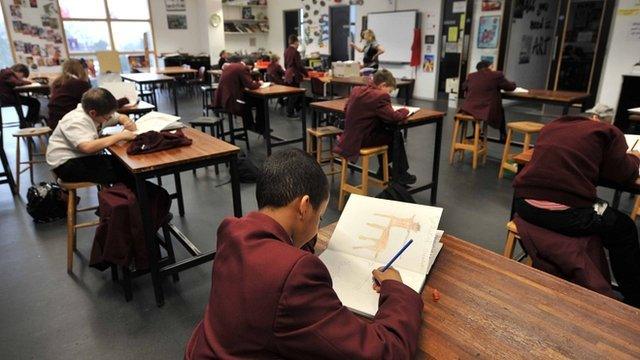
The biggest increases are going to be in the secondary age group, up by 570,000 in a decade
"The country will soon start to feel the full weight of the impending boom in pupil numbers and we're already seeing unprecedented pressure on school places.
"A radical new wave of school-building must be a top priority for the government," said chief executive Mark Robinson.
Scape says demand for places will vary between regions, with London, the south-east and east of England feeling the most pressure - and the north-east and north-west facing more modest increases.
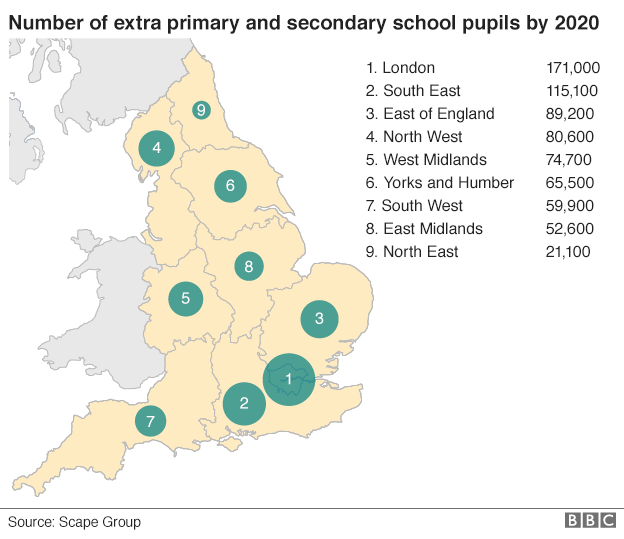
Council powers
The LGA has long been critical of the government's emphasis on free schools as the solution to the places crisis and says Scape's calculations support their argument that powers to open new schools should be returned to councils.
They also want academy schools, which are outside local authority control, to have to expand to make sure every child has a place.
"Councils have a statutory duty to ensure every child has a school place available to them but find themselves in the difficult position of not being able to ensure schools, including academies, expand," said Richard Watts, chairman of the LGA's Children and Young People Board.
"Finding suitable sponsors with the capacity to take on the running of a successful new school is also proving a challenge."
The DfE spokeswoman said the system was responding well to growing pupil numbers and thanks to "hard work and investment, 1.4m more pupils are now in good or outstanding schools than in 2010".
The overwhelming majority of parents (more than 95%) received offers in their top three preferred primary or secondary schools this year, she added.
- Published15 July 2016
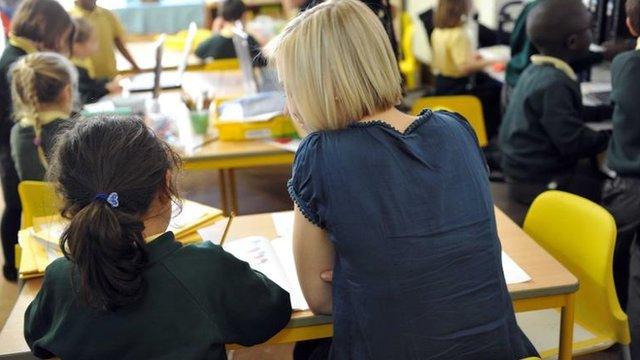
- Published15 January 2016
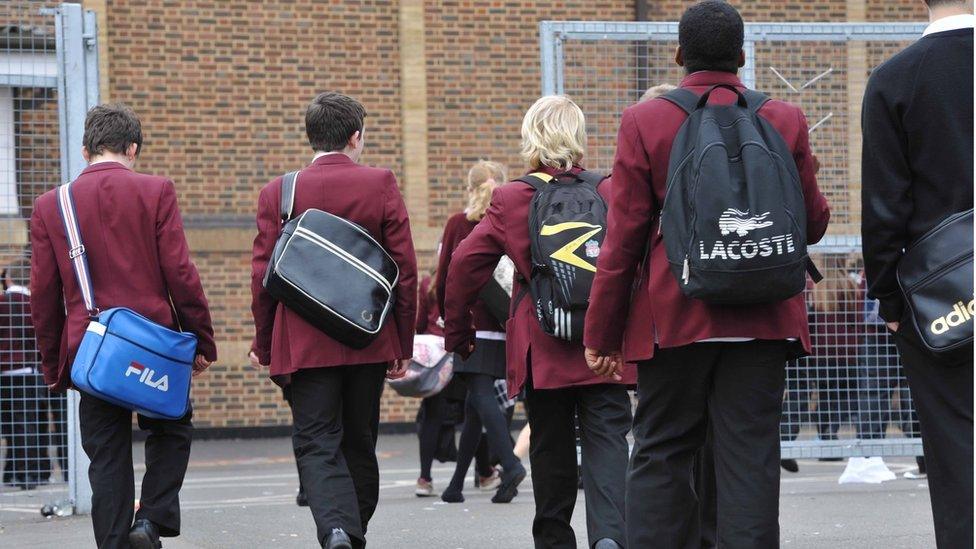
- Published3 April 2015
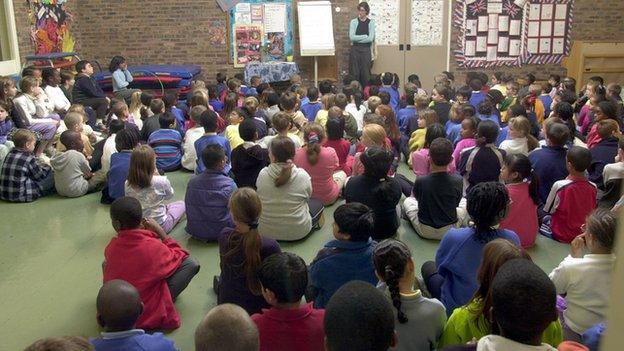
- Published9 March 2015
